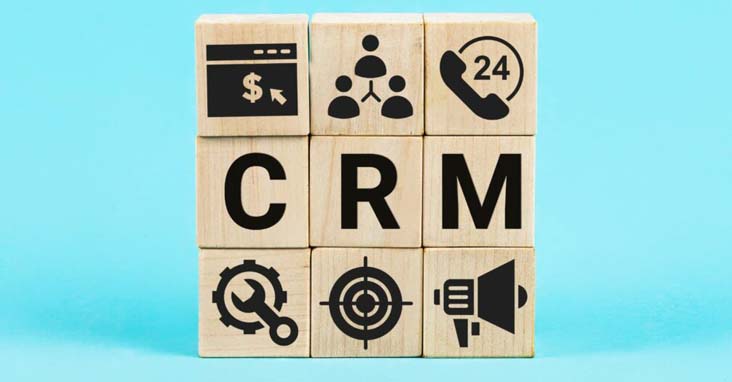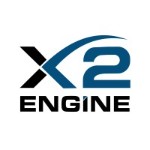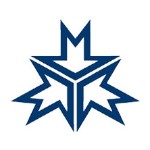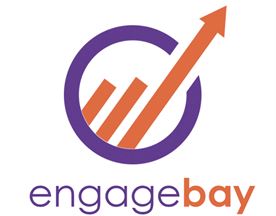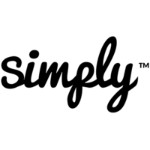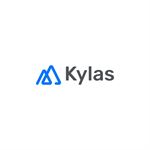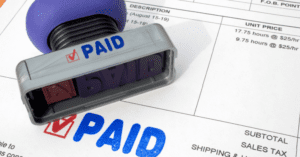If you’re looking to maximize your revenue as a small business by getting the most out of your sales team, then having the best CRM software solution for your business is crucial.
The best CRM for small business solutions let reps and managers nurture new leads through sales pipelines until they convert and become your customers, while providing a range of extra functions to boost your sales techniques and maximize your revenue.
But what does it take to be the best CRM software for small business? And what does that look like for your small business needs? With the vast number of options out there, with different CRM capabilities, understanding which features make the best tool can be difficult, and it’s almost impossible to determine whether a CRM is great or not based purely on marketing materials.
Working out whether a software tool is one of the best can only be determined by real-world experience, and then determining if that CRM is the best fit for your business needs is harder still.
Fortunately, our wonderful community of real-world users on Serchen has done the work for you. In this guide, we’ll be exploring all the ways the best small business CRMs helps your small business team maximize their revenue, and then we’ll be taking a look at the best CRM for small businesses as rated and reviewed by our users, so that you can make an informed decision about which of our CRM solutions is the best for you.
What to see our full list of CRM software solutions for your business? Then check out all our best CRM software reviews
What is a CRM System?
CRM stands for Customer Relationship Management. But what is Customer Relationship Management?
CRM is the process by which sales reps manage all the leads they have in their pipeline, nurturing them (hopefully) into customers.
Basic CRM software helps with the CRM process, but isn’t the entire CRM process itself. Your CRM process involves all the tasks your reps perform, from cold emailing to making presentations to your leads. The goal of CRM software is to enable your reps to streamline and perform better across sales through organization, automation, integration and reporting tools.
CRM software used to be an expensive tool, unused by small business owners because of the prohibitive server hosting costs and the license fees involved with software installation per user computer.
But times have changed, and with each cloud-based CRM vendor offering Sales as a Service (SaaS) subscription payment models, CRMs are no longer just the domain of enterprise companies.
For a lot of small businesses, ad-hoc CRM solutions like Excel spreadsheets can be an acceptable solution, provided the number of leads in your pipeline is small. But in a world where free CRM tools exist, with dedicated features to make sales a breeze, why settle for an imperfect solution?
In this guide to small business CRM, we’ll be looking at all the features you can expect from a top CRM system and understand how it functions to help your sales process.
And once we’ve got to grips with how your small business CRM system helps your reps and managers, we’ll take a look at a comprehensive list of the best small business CRM based on the ratings and reviews of our Serchen community, divided into categories to suit each company.
What Are the Key Features of CRM for Small Businesses?
Centralized CRM Platform
A huge issue when having your reps work across leads is the siloing of information. Siloing happens when there isn’t a centralized database for your information to be uploaded to, leading to key data on your leads and deals being stored on local computers, the whereabouts known only to the rep who made the document.
Cloud-based CRM software provides a solution to the issue of siloing by bringing all your reps onto one centralized platform, providing a clear interface with easy access to key information to whichever rep needs it.
With all information and documents stored this way, on the cloud, you no longer need to worry about data being trapped on individual’s hard drives and making embarrassing mistakes with your leads.
By having a database that updates in real time, your reps and managers will always have access to the most up-to-date information regarding your leads and their position in the sales journey.
Visual Sales Pipelines
CRMs are oriented around visual sales pipelines, sometimes multiple sales pipelines if your business provides more than one service. If you aren’t familiar with the phrase, here’s a quick explanation:
A pipeline charts the journey of your leads through the sales journey. Leads enter as they become known to your reps and system, and move through the various steps of the sales journey until a sale is made, or the lead chooses not to buy your product.
Each pipeline is unique, as small businesses have different steps they go through to nurture leads to a completed sale. Each business will also have different tasks associated with their lead management that will be unique to them too.
The pipeline can also be referred to as a sales funnel, in reference to the quantity of leads at each stage of the pipeline. Generally speaking, businesses will have the most leads at the very beginning of their pipeline, with each stage having fewer and fewer leads until sales are achieved.
What small business CRMs do so well is build your entire process around your pipelines and lead management, and by doing so it allows your pipeline to provide oversight over your sales processes.
From your deal management view, users can easily access information on any lead in the pipeline by clicking on them. CRMs act as a centralized database for all your customer and prospect information, so users who need that information can easily find it via the pipeline view.
There are lots of more advanced things you can do with your pipeline, such as working out your chance of progressing leads from one stage of your pipeline to another, estimating the overall value of your current pipeline, and using these metrics to forecast revenue, so check out our guide here for some great pipeline hacks!
Communication Tracking
Following on from the centralized pipeline view, the best small business CRM platform will also centralize your customer communications with each lead.
Whether you use emails, messaging, phone calls or video calls to communicate with your leads, it’s vital that your customer interactions are recorded in your CRM so reps can quickly get themselves up to speed with each lead’s unique needs, and work to give them the personalized solution they want.
It also means you won’t be asking your leads the same questions over and over again, even if you have different reps contacting them. Leads want to be taken seriously and have their needs heard, and by keeping detailed records of your communications you can ensure your reps are engaging with your leads and personalizing the purchasing experience every single time.
Lead Generation
Lead generation tools aren’t found in all CRM features, and can be easily found in third-party integrations (more on this later), but some of the CRM tools feature ways of generating leads and can be incredibly useful for businesses with a strong internet presence.
CRM lead generation tools generally focus on getting interested parties to make themselves known to your reps by creating a profile that can be added to your pipeline. Often this is done with web forms or newsletter subscriptions via your website, but there’s a variety of tools CRMs provide for this function (such as using chatbots to automate the taking of lead details).
For small businesses that have a lot of traffic visiting their website, this can be an excellent tool to boost the leads entering your pipeline, with the added bonus that your leads are generating themselves for you, saving your reps a bunch of time.
Data Security
You’ll be storing a lot of sensitive customer data on your CRM database, including your leads’ personal details, and possibly even payment information. It is vital you keep this data safe — businesses don’t like doing business with people who don’t take security seriously.
In the past, this would have meant a lot of expense making sure your small business server was up to date with the latest security measures to keep your data, and your customer data, safe. However, with cloud-based CRM hosting, the CRM provider is the one handling this. It’s in a CRM provider’s interest to keep their servers as secure as possible, and they have the time and resources to do so.
Nevertheless, it’s worth checking out the security details of any CRM provider you’re interested in. Great small business CRMs ensure all your data is safe, yet still easy to access for your users, which means you can avoid having to explain any embarrassing data breaches to your leads.
Reporting
The sales journey needs to be flexible; each lead is different, and your reps’ approaches and techniques will need to adapt and be honed over time.
But for small businesses, knowing how to go about making positive changes to your deal management process is difficult, which is where sales data reporting comes in.
By analyzing your team’s sales activities and the data from your pipeline, your CRM system will present your team with data-driven insights about the success of your sales process. By looking at the data your CRM presents you with, you can begin to make changes based on the objective success of your techniques and approaches, and see where the bottlenecks in your process are.
Plus, with real-time reporting dashboards, small business CRM software solutions let reps and managers see how reps are performing by measuring their results against designated KPIs. Managers can see where individual reps are excelling and falling short, and make positive changes to empower their reps based on real-world data, while also using the sales forecasting features to predict the future of their business’s sales.
Integrations
One of the great features of CRMs for small businesses is the number of useful integrations with other business software to save your reps time, not to mention speed up other business processes.
Most software solutions offer some level of integration, but CRMs are incredibly integration friendly. Sales is such an integral part of any business that many different teams need to use data generated it (e.g. accounting, human resources, marketing tools users), and there are so many aspects to the sales process that third-party software can help either streamline or automate.
From apps that help generate contracts by pulling data from your CRM solution to call center software that builds entire communication hubs into your CRM, integrations are a fantastic way of tailoring your sales tools to fit your business’s bespoke sales process.
Small business CRM software solutions have healthy ecosystems of third-party apps that can be easily integrated with the click of a button, or by using Zapier. It’s also possible to use the CRM API to build custom integrations for developers looking for a bit more of a challenge!
When thinking about your CRM, remember to take into account the software stack your business already uses to make sure your CRM will slot nicely in and make your workflow a breeze.
Check out our guides on how to integrate your sales commissions, contact center, help desk automation, marketing automation, sales integrations, and other useful CRM automation integrations!
Workflow Automation
One of the great time-savers of modern business, workflow automation means doing away with the drudgery of repetitive admin and data entry tasks.
Great CRMs provide your reps and managers with a host of ways to automate the repetitive mundane tasks that can be completed more quickly (and without any chance of human error!) by the software.
As well as saving a huge amount of time, automation also gives your staff the ability to focus on the complex sales relationship tasks that need a human touch. Reps want to get on with selling, not wasting time doing admin, and CRMs for small business lets them get on with guiding leads through the sales funnel while it handles the admin work for them.
Automation can also be used with the third-party tools to streamline the transfer of information between software and set up documents and other processes once a trigger is reached. This saves your reps and members of other teams more time from repetitive busy work and can double down on the benefits your integrated software already provides.
How Do You Find the Best CRM Platform for Your Small Business?
When small businesses implement new software, they need to make sure the solution they’re bringing in is actually worth the disruption and onboarding time it’ll inevitably take. No matter how good the CRM is on paper, if it doesn’t work with your team’s preferred methods, you’ll have a hard time getting the best out of either your team or the software.
Instead, small businesses should think of their new CRM tool as a means of enabling their teams to do what they’re already doing, but even better.
If your staff aren’t familiar with complex interfaces, then certain powerful software options may just be impenetrable to them. Likewise, if your team has found a great workflow that depends upon third-party integrations, adopting a CRM that doesn’t integrate with that software will force your teams to have to develop a new workflow altogether.
The most important thing to understand is what your teams need. They’ll be the ones using it, and they want to do the best job they can, which means using the techniques they’ve developed. By talking to reps and managers, you can understand the priorities of your staff and find the solution that will be best for them.
Once you’ve adopted a solution that fits the needs of your team, they can use all the powerful CRM functionality to refine and change their process. The structures of small business CRMs are designed to facilitate your team to work to the best of their ability and learn from their successes and failures on how best to target your audience.
Adopting one of the best CRM system solutions on the market isn’t a guaranteed recipe for success; combining one of the top CRM for small business solutions with a team that wants to use its features to get the best out of their sales is!
The Best Customer Relationship Management Software for Small Businesses
Okay, so now we have an understanding of how the best CRMs work and what they can bring to your sales teams when they works in concert.
With that in mind, let’s take a look at the best small business CRM solutions software companies have out on the market today, as rated and reviewed by our awesome Serchen community based on their real-world experience using this software.
Want to see even more options? Then check out our reviews of Zoho CRM, Monday Sales CRM, Agile CRM, and Sugar CRM, as well as their alternatives, so you can make the best choice for your business
Free CRM Solutions
EngageBay
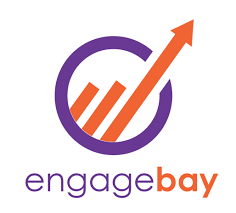
Price From: $0 per user per month, free plan
EngageBay provides users with a suite of software for their marketing, sales and customer service efforts, with a free CRM tool at the center.
With a powerful cloud-based contact management system that allows users to score leads, segment them into useful categories and apply custom tags to them, all your contact information is centralized with useful ways to understand the leads in your pipeline.
And with clever tools to help manage your pipeline, such as deal milestones and deal segmentation, along with a simple drag-and-drop pipeline interface, users can quickly see the overall health of the pipeline as well as the progress of each individual deal.
Engagebay’s free plan also comes loaded with great automation tools, including lead generation forms and workflows between the marketing tools it comes bundled with, meaning your reps spend less time on data entry and more time on selling.
With reporting features and sales rep engagement tools, you can ensure that your sales teams are performing collaboratively and individually, with the data-driven insights you need to understand where changes need to be made. And utilize Engagebay’s CRM Telephony to integrate and record all your sales calls and provide notes during calls to boost sales and learn from pasts successes.
Wakeupsales

Price from: $0 per user per month, free plan
Wakeupsales CRM features a free option designed to make your pipeline crystal clear, so that users can streamline their process and keep track of their leads.
With a customizable sales pipeline and a drag-and-drop interface, you can quickly and easily visualize your sales pipeline and make changes as your deal progress, while adding custom information and tasks to your leads.
And with lead qualification built-in, you can easily see which of your leads are most likely to convert and the next steps you should be taking to help them along their journey. Assign tasks to your team and set follow-up tasks to make sure there aren’t delays and bottlenecks in your process.
Wakeupsales’ free plan also includes detailed reporting and dashboard views, so you can reflect on the effectiveness of your sales strategies and see how your reps are performing in real-time. Plus, with the ability to set your reps goals, you can keep them engaged within your CRM software.
With ample automation options and integrations with lots of the most popular software options, Wakeupsales allows users to streamline their workflows and save time that can be better spent interacting with your leads.
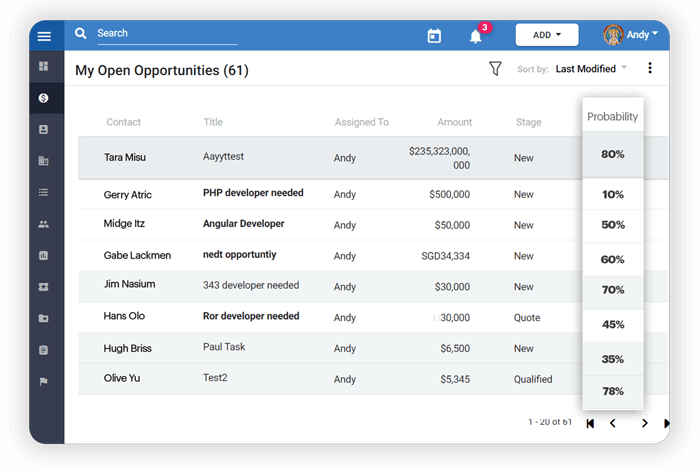
Infinity Suite

Price From: $0 per user per month, free plan
Looking for access to 39+ great apps for free, including CRM software? Then check out Infinity suite by 500apps!
CRM.io, the CRM component of Infinity Suite, gives users everything they need to get their pipeline up and running with a centralized database, for free.
With centralized data management, you can capture your leads’ information and store it on the cloud, and use tags to track their history and Kanban-style boards to chart their journey through your pipeline.
With tools to help you organize and prioritize the best deals, CRM.io can help focus your team on the most lucrative and likely to convert deals. And with an array of automations to be customized through the drag-and-drop flow builder and in-depth graphical reporting of your sales activities, you can save time and hone your sales techniques.
And as for integrations, CRM.io is designed to integrate with the 39+ other software tools bundled in Infinity Suite, as well as a huge amount of third-party apps, so it should easily integrate with your existing software suite.
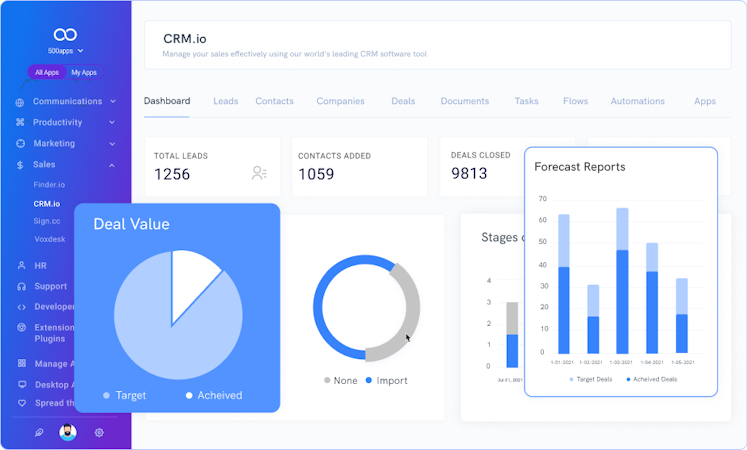
Bitrix24

Price From: $0 per user per month, free plan
Bitrix24 is another fantastic free CRM solution that comes bundled with other free software, including collaboration tools, project management, online drive, contact center and website builder!
With all the useful pipeline management features you’d expect (such as a drag-and-drop interface and custom deal stages) included in the free plan, Bitrix24 builds on the basics with a plethora of free lead capture tools. By making use of the free website templates and web forms, as well as communicating to your leads through live chat, phone calls and social media, you can automate the lead capture process and score them to decide which new leads to prioritize.
Bitrix24’s free plan makes a great choice for businesses starting out who are looking for a full suite of software to manage their business while ensuring integration compatibility between software tools. Plus, with a healthy ecosystem of third-party apps, you can fine-tune Bitrix24 to suit your business’s exact needs.

Entry-Level CRM Systems
Simply
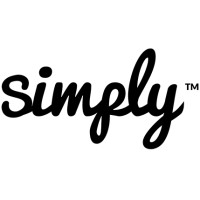
Price From: $16 per user per month billed annually, free trial for 14 days
Simply CRM prides itself on bringing users the CRM with the most simple to use and understand interface, which can be a real boon when working with lots of leads in your pipeline.
Plus, they also offer a free consultation about how best to set up your CRM, with a huge knowledge base and onboarding programs to get your team up to speed and make the most out of your new CRM in no time.
With a focus on clarity and simplicity, Simply makes it easy for users to manage their pipeline, but that simplicity also extends to the centralized contact management system, which allows for quick importing of all your contacts, splitting them into groups and associating them with records, as well as a separate database for managing your interactions with organizations.
Plus, with custom real-time data dashboards, reps and managers can stay up to date with how effectively each rep is selling when measured against KPIs, to show where reps need support, and where they are selling like a pro.
And with a mobile app, reps can access the CRM from anywhere, allowing for extra flexibility, and with 24/7 email, live chat and phone support, the Simply team are ready to help you whenever you need it.

AddressTwo

Price From: $14 per user per month billed annually, free trial for 14 days
Rather than scale down enterprise-level solutions, AddressTwo took the approach of designing CRM software specifically for small businesses, as they understand the needs and priorities of small businesses focuses more on the creation and nurturing of relationships.
That’s why their CRM software puts the spotlight on all the useful features of CRM a small business would want, without any of the extra bloat.
AddressTwo focuses on the personal relationships both within sales teams and externally with customers, where each customer is built upon a trusting relationship. It’s also designed to make onboarding as quick as possible, as small businesses can’t afford lengthy adoption and ramp-up times. And with an added emphasis on lead generation techniques, such as web forms for your website visitors, you can start working on those personalized relationships sooner.
But AddressTwo also offers the key functionality all businesses need from their CRM. It gives you the centralized database you need to organize and store all your contact information, as well as detailed reporting and sales activity tracking to give your team feedback on their best sales techniques. And with tasks and task reminder features, as well as mobile and iPad applications, reps never need to miss an opportunity to progress a sale again.

Less Annoying CRM

Price From: $15 per user per month billed annually, limited free trial available
If you’re finding the variety and complexity of CRM software overwhelming, then take a look at Less Annoying CRM. It gives you everything you need to manage your sales, but cuts out all the noise to let you focus on what’s important.
For example, it costs $15 per user per month, and that’s it. No complicated pricing tiers and paywalled features. And if you need help with something, then you can speak directly to a real person, over email or phone.
But that isn’t to say the features Less Annoying CRM has prioritized aren’t powerful. What it means is they’re easy to use. With an easy-to-understand centralized database to store all your contact information and an integrated calendar to monitor all your team’s tasks, you’ll have easy access to the information you need to get on with the tasks that need doing. And with a clear pipeline view with lead reporting tools, you can make sure your team is following up with every lead on time.
And Less Annoying CRM lets businesses customize their CRM to suit their working needs without having to have a coding expert on hand, so you can work the way you want straight out of the box. Plus, with mobile access without needing dedicated apps, you can access your CRM from any device, anywhere, letting your reps be as flexible as they need to be.

Comprehensive CRM Systems
Commence
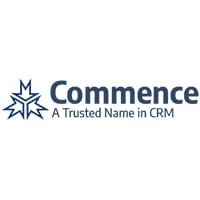
Price From: $29 per user per month billed annually, min. 5 users, limited free trial available
Commerce brings users an all-in-one solution that boasts integrations with Commerce’s marketing software, project management software, and customer relationships tools.
With a powerful centralized database for all your accounts and contacts, your reps will have easy access to all the information they need to progress leads through the deal pipeline. And with task views, automated reminders and alerts, they’ll never miss out on an opportunity to get a deal closer to completion.
Commerce is a fully customizable solution, meaning that businesses can set it up from the word go to work best with their selling process. With a pipeline that suits your selling process and lead scoring functions, you can ensure all your reps are targeting your hottest leads with your tried-and-tested process.
And when it comes to refining that process, the built-in reporting and sales analytics can give managers data-driven insights into where the bottlenecks in a sales techniques are.

Pipedrive
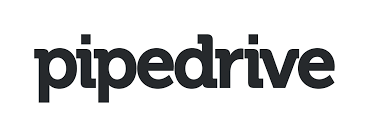
Price From: $14.90 per user per month billed annually, 14-day free trial available
Pipedrive brings users a solution based on simplicity of use and understanding, without skimping on the powerful features that the top CRM system software tools provide.
With clear and simple-to-understand pipeline management, built on customizable sales stages, users can see from a glance the health of their pipeline and where efforts should be concentrated next. An easy to-understand centralized database for your leads and deals means information is never siloed and is accessible to whoever needs it.
With a number of extra features out of the box, such as email syncing with customizable templates and scheduling, one-click calling and call tracking, and customizable eSign documents and contracts, Pipedrive helps deliver on all aspects of your sales practice.
Plus with detailed reporting, projections and forecasting, you’ll be able to provide numbers to management while honing in on the best sales practices to further increase revenue.
And with an ecosystem of over 300 third-party tools, extensions including project management tools, and 24/7 support for whenever you need help, Pipedrive lets you tailor your CRM experience to whatever you want it to be, enabling your team to sell at maximum efficiency.

BlueCamroo
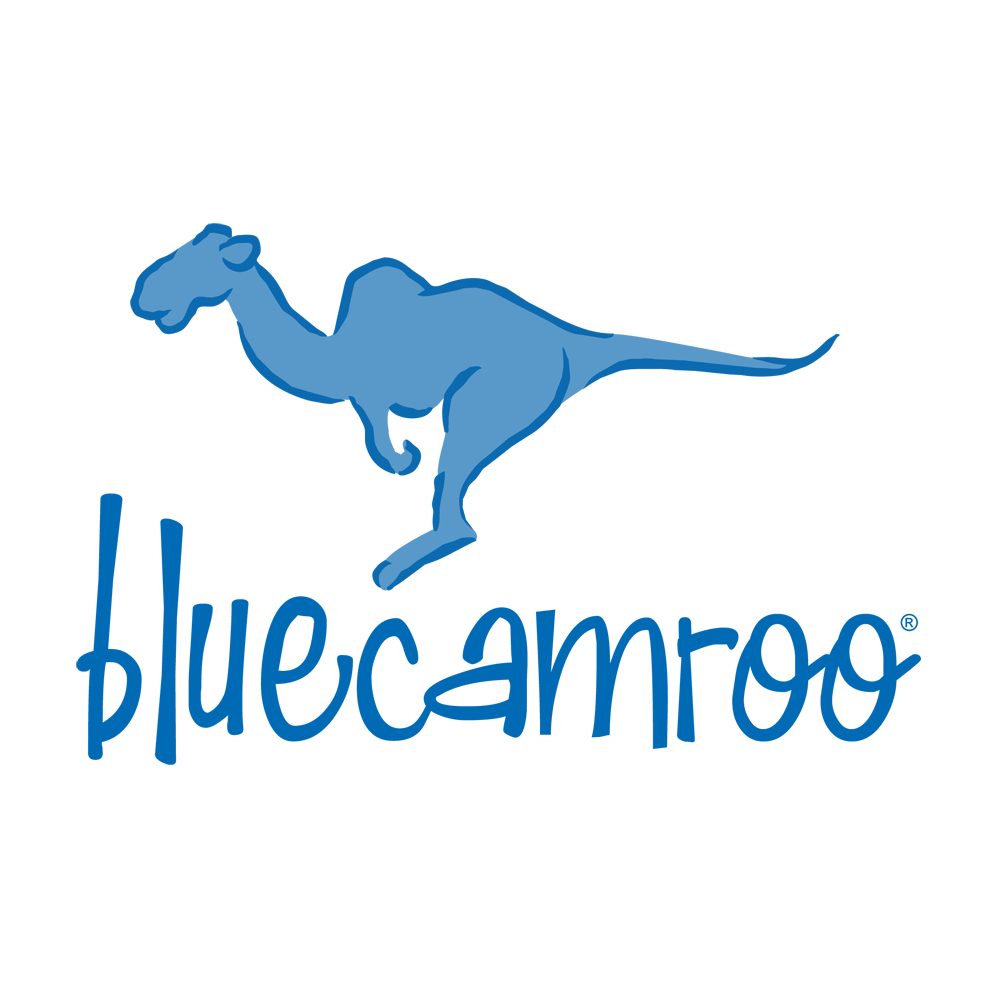
Price From: $5 per user per month billed annually, 14-day free trial available
BlueCamroo brings you a fantastic CRM solution and sales extension designed to help your reps meet the needs of your leads and customers.
The basic CRM platform gives reps and managers everything they need to keep track of the progress of deals through the sales pipeline, as well as a centralized platform for all your staff to work across with real-time updates.
It also has a series of great features to aid your sales activities, including multi-channel lead capturing, task management systems, scheduling tools for meetings and calls, workflow automations to streamline your reps’ workload, and a reporting dashboard to provide real-time feedback about your reps’ performance.
But with the sales extension, you’ll extend your team’s abilities even more. With time-tracking software, you’ll be able to measure internal costs and billable hours for your clients, and with the sales dashboard, you’ll be able to provide your team with oversight of their most recent leads, opportunities and quotes, as well as their latest tasks, with an option for sales managers to look at individual performances and set goals based on the information.
The sales extension also comes with powerful reporting and forecasting tools to provide oversight to managers over the whole sales process, and to help hone your team’s sales practice.
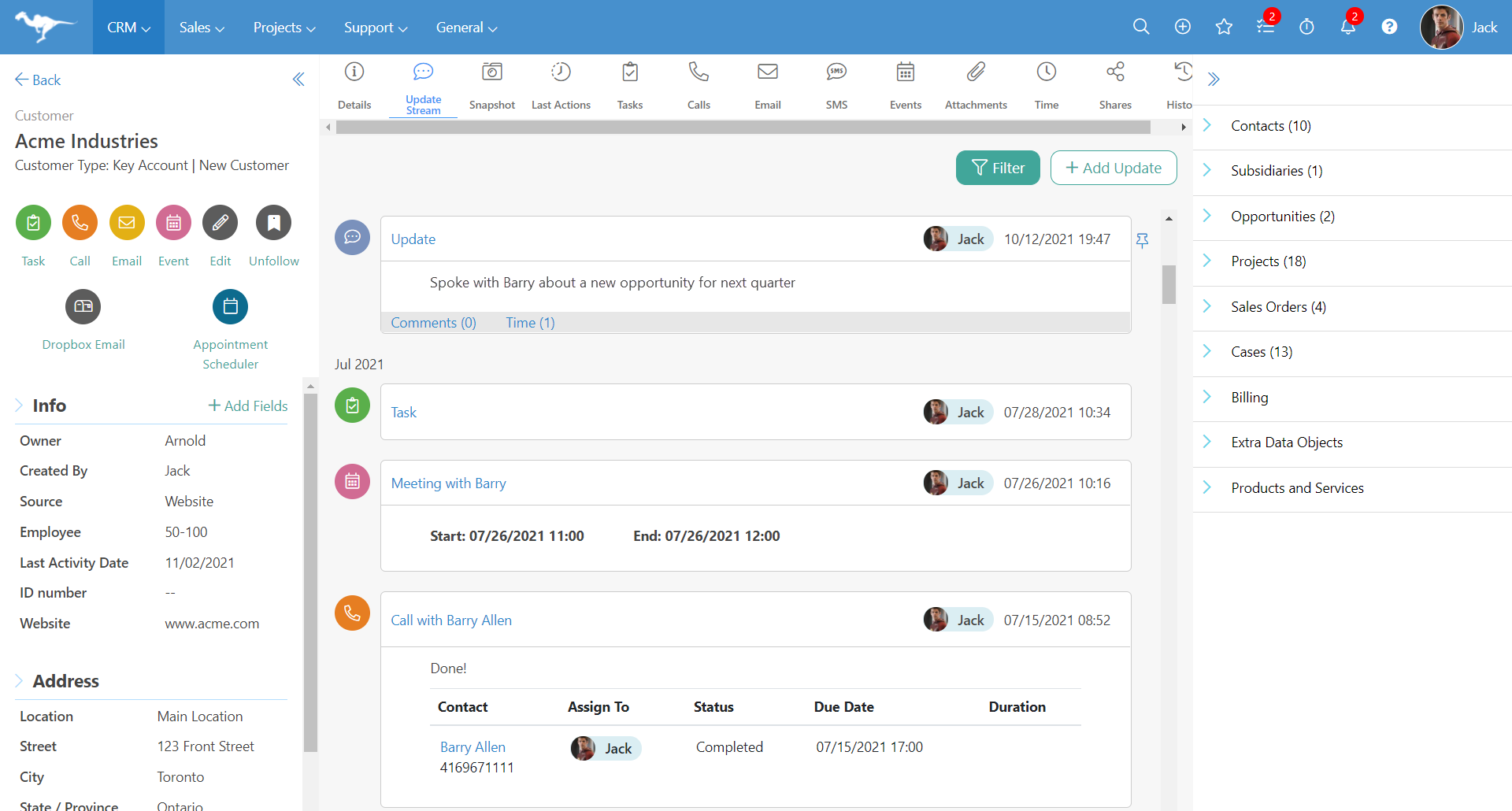
Do Small Businesses Need a CRM?
Great CRMs for small businesses give your team unparalleled oversight and control over the sales.
With centralized databases to provide easy access to vital information across the team, clear visual representations of your sales pipeline, data-driven reporting on your reps’ sales activities and their effectiveness, as well as other great tools like lead generation and capturing, workflow automation and reminders, and third-party app integrations, the best CRM for small business software on the market today allows your team not only to stay on top of sales, but to maximize revenue, improve techniques over time, and provide accountability and forecasting for the rest of the business.
But when it comes to selecting the best CRM for small business tool for you, it’s key to find one that works with your team, not against it.
Certain features just won’t be useful to your team if they already have a great workflow using different software to accomplish the same task. But if your new CRM provides a simple solution to an issue that’s been a thorn in the side of your sales team, then that could be a match made in heaven.
But in the modern world of cloud-based software, there really is no better tool for staying on top of your sales and improving your team’s performance than a CRM system, and with so many fantastic affordable (and free!) options available, your business should be using one if you’re looking to maximize your sales (which we assume you are!).

